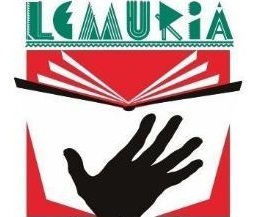- Categories:
What’s in a Name?: Lemuria Books
- By Liz Button
More than 40 years ago, John Evans chose Lemuria Books as the name of his Jackson, Mississippi, bookstore to represent the store’s then countercultural leanings. Today, the name’s significance still applies, just in a different way, he said.
 Evans founded Lemuria in 1975, when he was 24 years old, as one of the few counterculture bookstores in the conservative South. “I wanted to feature books on metaphysics, counterculture, psychology, and the occult,” he said, as well as books by some of his favorite authors, including Hemingway, Steinbeck, and Faulkner.
Evans founded Lemuria in 1975, when he was 24 years old, as one of the few counterculture bookstores in the conservative South. “I wanted to feature books on metaphysics, counterculture, psychology, and the occult,” he said, as well as books by some of his favorite authors, including Hemingway, Steinbeck, and Faulkner.
“I was traveling all around looking for alternative books and couldn’t find very many of them in many places in the South, so I decided to open my own store,” Evans said. “I thought, well, I don’t want to call it John’s Books; I’m not that narcissistic. And I can’t really call it John’s New Age Bookstore or Counterculture Bookstore, not in the middle of Mississippi, at least.”
In the end, Evans decided to call it Lemuria, after a mythical civilization that was purported to have existed before the lost city of Atlantis.
According to the myth, the lost continent of Lemuria was once home to an extremely advanced human civilization that possessed the ability to communicate through mental telepathy. But the proud people defied the gods, who took away their gift, leaving them to invent new methods of communication. As the legend goes, the Lemurians consequently developed the world’s first system of writing and began recording their thoughts in books.
“The lost continent of Lemuria was home to the creative aspects of occult, myth, and hieroglyphics, the symbols of the first books ever written,” Evans said. “I found that out in a book, and I just got into the whole aspect of the creative process of transference of thoughts through words and ideas, and creativity, and all of the things that Lemurian culture is mythologized as.”
Since its founding in 1975, Lemuria Books has changed as the book industry has changed, said Evans, through the independent bookstore boom of the ’80s and the rise of eBooks and Amazon in the 2000s. As a result, the name’s relationship to the store’s brand has also changed.
“When I was first starting out, it was like I was kind of alone and lost down here, trying to do what I was doing: opening a counterculture bookstore in the South,” Evans said. “I could identify with being a lost continent.”
Now, Evans said he imagines that the Lemuria name relates more to the bookstore’s eternal mission: supplying customers with the hard-to-find books they are looking for. Lemuria continues to do this through its backlist stock, as well as its focus on out-of-print books and first editions.
“Hopefully Lemuria’s brand has become more defined as to what it’s trying to do. I think it’s kind of funny because we’re surely not an occult or new age bookstore today,” he said, just like City Lights in San Francisco, which grew out of the Beat culture of the ‘50s, is not a Beat bookstore today.
“In a way, we still represent the counterculture today, at least where we are,” said Evans, “but I also think we represent the current culture where we are, too. That is one of the ways our bookstore has changed. But we’ve always been interested in giving the community something alternative and, hopefully, we are still doing that.”

